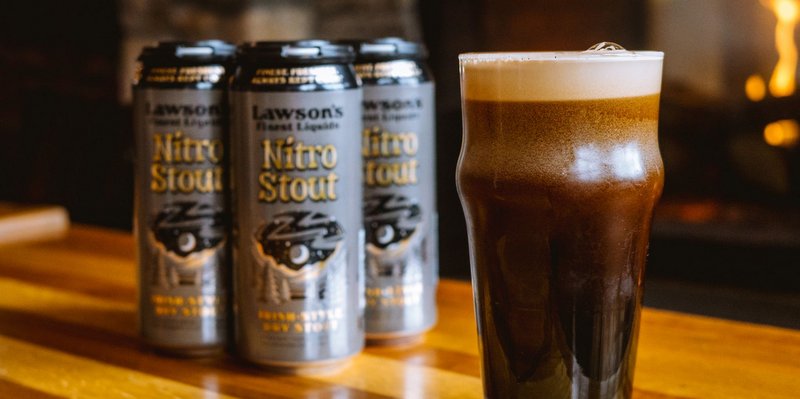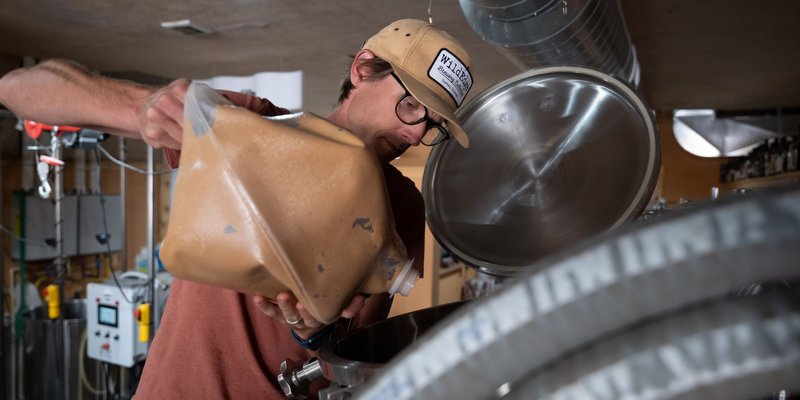
Previously, on As the Craft Beer Industry Turns, we saw Brooklyn Brewery partner with 21st Amendment and Funkwerks on a new sales and distribution strategy. Even though international brewing corporation Kirin owns a 24.5 percent share of Brooklyn (juuuuuust below that arbitrary craft beer definition), it seemed like a pro craft beer move to us at first glance. But others in the craft world — perhaps fatigued by yet another consolidation of power in the market — didn’t quite see it that way. On this popular craft beer Reddit page, one of those breweries, Sixpoint, voiced that opinion.
We freely admit we don’t have a side here (and really, that’s not a useful way for us to frame any of these business decisions), but we did think both provided valuable perspectives to consider and really did neatly sum up the existential crisis of the craft beer industry right now. So, we thought it would be constructive to post those for your perusal below. First the response from Brooklyn Brewery and then the response to the response from Sixpoint, clarifying some its earlier statements.
Brooklyn Brewery defends position
We’re disheartened by the comments from our craft neighbor here in Brooklyn. We couldn’t agree more with Sixpoint on the point that the industry is getting controlled by some big powerful players. That is why we decided to try to get stronger by partnering with some craft friends.
As announced months ago, Kirin bought a 24.5% share of our brewery. Kirin’s main interest is developing the Brooklyn Brewery brand in Japan, and to that end we kicked off our joint venture with them in Japan beginning in March this year.
The partnership with 21st Amendment and Funkwerks is between the two breweries and Brooklyn, not Kirin. The minority investments came from Brooklyn, not Kirin. The assertion that Kirin has a “path to control” of 21st Amendment, Funkwerks, and Brooklyn Brewery for that matter, is 100% incorrect. Why Sixpoint feels they need to spread false information to the contrary is disturbing. Craft brewers would be better served by working to continue the incredible craft beer revolution that has gotten us to a 12% share of the market, not casting false aspersions.
Further, Brooklyn Brewery has no path to control of these two breweries. Our minority investments are in support of the partnership and demonstrate our commitment to a national sales platform with 21st Amendment and Funkwerks. They allow 21st Amendment and Funkwerks to invest in improving their quality, their efficiency, and their capacity. Last we checked those were all desirable things for any craft brewer. We believe this sort of collective action is essential for independent craft breweries to compete in the US market.
We understand that the current state of the craft beer industry is a passion point for many, ourselves included. Regardless we all must commit to building our conversations and opinions on a foundation of facts. The beauty of the craft beer industry is in the many paths that have been chosen. We encourage every craft brewer to choose their own path, be transparent about it, and celebrate it, not disparage those of others.
Thanks for listening,
Brooklyn Brewery
Sixpoint explains its issue with today’s outside financial partners
Brooklyn Brewery is an awesome neighbor and a pioneer of the craft brewing industry. I consider Steve Hindy a friend and he has been nothing but polite and kind to us over the years. I have tremendous respect for their longevity what they have done with their brand and how they raise the bar for American craft beer worldwide. I think all American craft brewers should feel a great sense of gratitude about those awesome contributions they have made.
However, the Brooklyn Brewery blog post seems to gloss over the point of our original commentary or tries to sidestep it, instead of addressing the main issues raised. It never said that Kirin as a single standalone entity has a direct path of control of the aforementioned craft breweries. The whole point of the commentary is the insidious nature of the current consolidation wave in craft beer that allows the brewing conglomerates to achieve a controlling stake in American craft breweries through a series of interrelated LLCs while maintaining good optics in press releases. That’s the point.
Similarly, Heineken Brewery does not directly have a stake in Short’s Brewing, Independence Brewing, or Moonlight Brewing in the United States. Please note when those equity stakes were announced, it never said that Heineken acquired ownership in those companies. The fact is those breweries are now partly owned by “Lagunitas US Holdings” which by definition is a completely different company than Heineken. But please, let’s remember that Heineken now wholly owns Lagunitas Brewing Company. So we can argue until our face turns blue about the fact that these American craft breweries are “not owned by Heineken” but we all know they are owned by a brewery’s name that is 100% owned by Heineken.
Also please note that all of these “partnerships” and “equity stakes” by both Lagunitas and Brooklyn Brewery were not announced until after Heineken took their stake in Lagunitas and after Kirin took their stake in Brooklyn Brewery. That is not a coincidence. As mentioned, this is all part of an M&A craft strategy that was put together by both parties at the time of the investment with the logical endgame being consolidation. Both Heineken and Kirin have a craft strategy, and they need an aggregator for brands.
Curiously, the specific mention about Kirin’s “24.5% stake” in Brooklyn Brewery and the press release associated with that seem to only reinforce the commentary that these press releases are often about optics. Kirin could have elected to take a 15% stake in Brooklyn, or a 20% stake, or a 30% or even 49% stake. But the 24.5% stake was specifically chosen because that is right near the maximum amount allowed by the Brewer’s Association and still maintain the “independent” definition of a craft brewer. Of course, that definition has been revised many times over the years, so that number may change arbitrarily again…just as other aspects of the definition have changed.
One thing I do agree about in Brooklyn Brewery’s blog post is that we should continue to concentrate our efforts in making awesome beer and push forward in getting more market share for craft beer — above and beyond the 12% we have achieved so far. But one thing that does not help that effort is the recent string of press releases that seem to be at odds with the underlying reality in craft beer — it is incrementally being gobbled up by major global brewing conglomerates (AB-InBev, SAB-Miller (now AB-InBev), Heineken, Kirin), and sometimes these activities are glossed over in optics-driven press releases.
One critical point of clarification as well — a “direct path to control” as referenced in the original post I hope is clarified via the confusing and interconnected nature of how these entangled structures work. Often a single brand is invested in as a platform and used as an aggregator for a parent company, and although that aggregator brand is the one that makes equity investments in other breweries, the aggregator brand itself is partly or wholly owned by a parent company conglomerate.
This is by no means atypical. And perhaps most important, this is a pretty clear goal of most global conglomerate companies: they want to garner as much global market share as possible, and maximize profits. A hallmark of capitalism no doubt — but that doesn’t mean we can’t all be real about the subtext of a press release.





Leave a Reply
You must be logged in to post a comment.